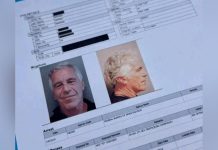Africa-Press – Seychelles. With the resumption of hearing , principal secretary for housing, Denis Barbe, was the first person to appear in open session before the Truth, Reconciliation and National Unity Commission (TRNUC), trying his utmost best to justify the injustice of the former regime regarding the country’s housing allocation programme.
PS Barbé was being quizzed in case 0351 filed by Jacqueline Anacoura concerning her application to be allocated a parcel of land from the government for well over a decade.
In her complaint before the TRNUC, Mrs Anacoura also said that she was consistently denied security clearance, and the right to employment, and she believed that the consistent refusal to allocate her available plots of land she identified was a continuation of the victimisation she suffered in relation to her employment.
PS Barbé was asked to give an overview of the government’s housing assistance scheme which according to the chairperson of the TRNUC Gabrielle Louise McIntyre is relevant to a number of cases before the commission, involving people who have made applications and waited for decades, without any result.
He explained that since 2013, there has been a consultant working with the housing department, doing psychological researches on factors directly impacting applicants, coming up with parameters to prioritise them based on need situations and needs.
In reality, all the decisions regarding who will, or will not, benefit from houses were taken at district level, precisely the district administration offices which were used as screening tools to identify pro-government applicants and those who were not in favour of the regime.
The selection process was purely based on political affiliation, rather than situations and needs.
With the district administrators being supporters and activists of the ruling party, most of the complainants before the TRUNC regarding the issue revealed that they were opposition supporters and were targeted, or filtered, by the district administration.
To be exact, the selection process was being guided by political affiliation.
It was a common trend in those days for application forms to be misplaced, hidden, or lost.
PS Barbé said the reason for handing over the responsibility of identification process to the district authority was because they knew the community better, in terms of needs.
When asked whether a set of criteria was given for the assessment at district level, PS Barbé explained it was purely based on the district authority’s knowledge of the applicants, particularly their needs and situations.
He however noted that the basic requirements to qualify include being over 18 years, in employment, and must be contributing towards the Home Saving Scheme.
At that point, Mrs McIntyre noted that being denied security clearance equals to no employment, therefore denied someone the opportunity of being eligible to apply.
She said the control that the government exercised over every aspect of the society, starting with the 1977 coup, has made it now very difficult for there to be change, affecting the lives of many people.
PS Barbé said prior to taking up senior role within the ministry, he was more or less involved in other areas, including surveying, therefore was not in a good position to talk about the process, prior to his appointment as principal secretary.
He said he was only speaking based on his observation.
General witness Gilles Lionnet
Local music producer, singer and composer Gilles Lionnet was the second witness to appear before the TRNUC yesterday in open session as a general witness to provide information on the Seychelles People’s Progressive Front (SPPF) Youth League, including the philosophy behind and the activities conducted.
It was after the 1977 coup that a variety of youth organisations set up by the government, including the Young Pioneers, the Pioneers and the Youth League, supposedly to motivate youth and to provide opportunities for their active participation in the development of the second republic.
The Young Pioneers, created in 1978 recruited boys and girls of 6-12 years of age, while the Pioneers gathered youths of 12-16 years old.
Then there was the Militant Movement – from the National Youth Service (NYS) – and the Brigad Militer Lazenes which was an arm of the Seychelles People’s Defence Forces.
The SPPF Youth League, the umbrella organisation that united all the youth movements together, was formed in 1985.
Members of the SPPF Youth League established friendly relationships with other progressive youth organisations in socialist countries with the aim of promoting international brotherhood and solidarity.
Mr Lionnet said his journey within the youth organisations began in the late 70s when he started to work with the Young Pioneers, following encouragement from the late John Mascarenhas.
He was then selected to attend the 11th World Festival of Youth and Students, in 1978 in Havana, Cuba, where he was impressed by the country.
This, he said, was a motivating factor and once back in the country, he was offered a Cuban scholarship to study Social Science.
After his studies and once back in the country, Mr Lionnet was employed by The People newspaper, before he was given the mandate by Albert Rene to set up the SPPF Youth League.
The Youth League was governed by a national committee headed by the late Ralph Adam, while Mr Lionnet was appointed as director.
He said he approached the youth from the Seychelles Polytechnic, along with those from various districts who were active within the party (SPPF).
Among the projects conceived under his leadership were the Youth Centre and the famous Flamboyant Discotheque, along with re-development of the Children’s Playground (in collaboration with Geva Rene who was in charge of the National Children’s Council).
The Victory Monument which used to be at the International Airport and the Veuve Recording Studio were other projects undertook by the Youth League, under the leadership of Mr Lionnet, along with the national traditional dance competition.
They also carried out environmental projects, including reforestation under the guidance of Willy Andre and also assist the fire department when understaffed.
Mr Lionnet left the Youth League in 1990.
Case 210 – Philippe Albert
Complainant Philippe Albert was the third person to appear before the TRNUC yesterday – via Skype – in case 210, filed by himself regarding unlawful acquisition of his father’s – Roger Albert – land and also his own victimisation, losing his business at the hands of the former regime.
To begin his testimony, Mr Albert noted that never has a small man inflicted so much pain, heartache, hatred, disappearance, to so many people on these little islands, referring to Albert Rene.
He said his father owned a share in the Seychelles Club and was ordered, through a letter from the Ministry of Planning and Development, to give up his share.
On May 6, 1985 his father was informed through a letter from Jacques Hodoul that his property at Anse Aux Pins was being acquired.
A sum of R300,000 was offered, which he refused.
In 1988, his father received another letter that his property at Anse Des Genets was being acquired to accommodate the headquarters of the youth and community development.
Mr Albert said even if the family has been compensated regarding the acquisitions, they are not satisfied due to the fact that they have been inadequately paid, including rentals and other dues.
For More News And Analysis About Seychelles Follow Africa-Press






